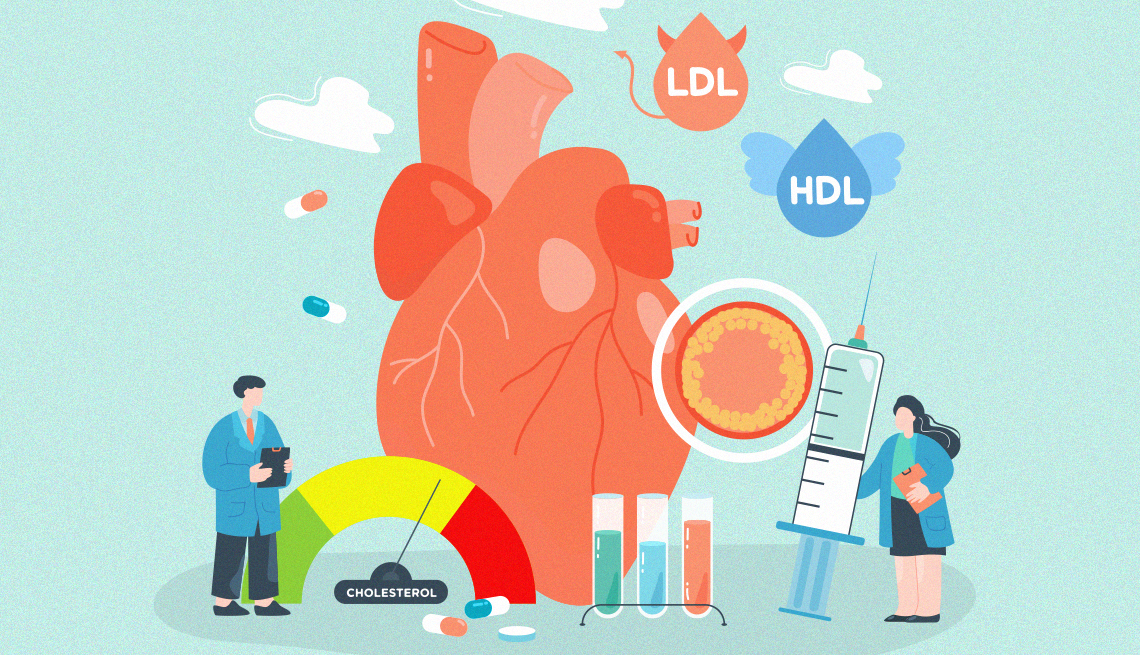
Is too much 'good' cholesterol a bad thing?
- Select a language for the TTS:
- UK English Female
- UK English Male
- US English Female
- US English Male
- Australian Female
- Australian Male
- Language selected: (auto detect) - EN
Play all audios:

Cholesterol conversations tend to focus on the “bad” kind, more officially known as low-density lipoprotein (LDL) cholesterol, which can raise your risk for heart disease, stroke and other
serious health problems. But there’s also a “good” type of cholesterol, called high-density lipoprotein (HDL), and unlike its sibling, it can actually lower cardiovascular risks. On a very
basic level, HDL is used to carry “bad” fat through the liver so we can excrete it out of the body, a process known as reverse cholesterol transport, says neurologist Romie Mushtaq, M.D.,
who is also board certified in integrative medicine, a specialty that focuses on overall wellness and disease prevention. “That then helps to prevent plaque from building up in arteries in
the heart and brain,” Mushtaq says. The effect of HDL on cardiovascular risks is not insignificant. For example, when LDL (the bad type of cholesterol) goes up 1 percent, the risk for heart
attack and stroke goes up 1 percent. On the other hand, when HDL goes up 1 percent, the risk for heart attack and stroke gets lowered by 2 percent, says Stephen Kopecky, M.D., a preventive
cardiologist at Mayo Clinic in Rochester, Minnesota. “It’s more bang for your buck,” Kopecky says. “But we don’t have a pill for it.” The only way to increase your HDL is with healthy
habits. WHAT ARE OPTIMAL HDL LEVELS? Both men and women should aim for an HDL level that’s at or above 60 mg/dL (milligrams per deciliter), health experts say. (Anything less than 40 mg/dL
for men and 50 mg/dL for women is low.) But there is an upper limit to consider. “If your HDL is over about 80 and you’ve had that all your life, then it actually can be a risk factor for
heart disease,” Kopecky says, though it should be noted that an HDL level over 80 mg/dL is considered abnormally high. Not only for heart disease, but other causes of death as well,
according to a 2022 study published in _The American Journal of Cardiology_. Researchers found that two smaller groups of people with coronary artery disease and HDL levels above 80 had a
significantly higher risk of dying in general than those with lower HDL levels.
